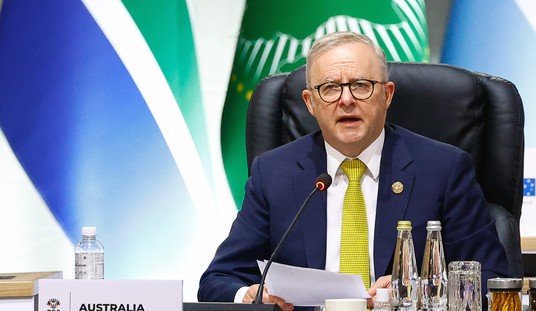WASHINGTON — For days after protests started in Cairo, the Obama administration struggled to find its voice about the “revolution” in Egypt. When the O-Team eventually decided Hosni Mubarak had to go, the White House and the State Department began chattering about a “democratic outcome.” In the end, they settled for a military coup while proclaiming a “victory for the people.” Now, with violent anti-government protests in the streets of Libya, Bahrain, Yemen and Iran, President Barack Obama’s moral ambiguity is increasingly evident — and dangerous.
The current predicament of what to do and say about the increasingly volatile situation in the Middle East is the direct consequence of totally inadequate intelligence and Obama’s own vague Utopian goals for the region. It has been that way since the beginning of his tenure.
On Jan. 27, 2009, a week after his inaugural, the president went on Al Arabiya television to apologize for past errors and omission by his predecessors. Obama said he was “communicating a message to the Arab world and the Muslim world, that we are ready to initiate a new partnership based on mutual respect and mutual interest.” He said nothing about “regime change” anywhere in the region.
Four months later, during his June 4 “New Beginning” lecture at Cairo University, Obama reiterated his regrets for past “conflict,” “tension” and “mistrust” between “Islam and the West.” Included in the seven “issues” he said “we have to confront” was a bland, brief mention of democracy. He introduced the topic by observing: “I know there has been controversy about the promotion of democracy in recent years, and much of this controversy is connected to the war in Iraq. So let me be clear: No system of government can or should be imposed upon one nation by any other.” Whatever that means, he went on to promise the U.S. “will welcome all elected, peaceful governments — provided they govern with respect for all their people.”
Just 10 days after his Cairo address, tens of thousands of Iranians took to the streets disputing the re-election of Mahmoud Ahmadinejad as president of the Islamic republic. Obama, wedded to his oft-repeated pledge to meet with Tehran’s theocratic leaders “without preconditions on the basis of mutual respect,” was mute for a week before calling for all sides to “reject violence.” The ayatollahs responded by brutally suppressing the protests, rejecting Obama’s naive call for direct “face-to-face negotiations,” and reasserted their intent to continue refining nuclear materiel in violation of international law and despite threats of U.N. sanctions.
On Dec. 17, 2010, turmoil erupted in Tunisia against the 23-year regime of President Zine El Abidine Ben Ali. After nearly a month of increasingly violent confrontations and silence from Washington, the Tunisian strongman opted to flee. On Jan. 14, as Ben Ali was departing for Saudi Arabia, Obama finally found reason to “condemn and deplore the use of violence against citizens peacefully voicing their opinion in Tunisia.” The 10-line written statement also called for “free and fair elections in the near future.”
No doubt inspired by this ringing endorsement, popular dissent against autocratic governments immediately appeared in Algeria, Libya, Egypt, Jordan, Syria, Bahrain and Yemen. The O-Team, caught flat-footed by the uprisings, was, at best, uncertain. On Jan. 27, a day after heavily armed police officers and protesters clashed in Cairo, Vice President Joe Biden went on television to describe Mubarak as “an ally of ours” and said, “I would not refer to him as a dictator.”
The following day, tens of thousands of Egyptians rushed from Friday prayers demanding an end to Mubarak’s rule. Over the course of the next two weeks, as the ranks of protesters swelled in Cairo’s Tahrir Square, Obama raised “the situation in Egypt” more than a dozen times in White House statements and remarks he made during media interviews and appearances. On Feb. 11, the day after our Egyptian “ally” abdicated in the midst of a military takeover, Obama joked to reporters at a “send-off” for his retiring press secretary, “Well, listen, obviously (Robert) Gibbs’ departure is not the biggest one today.”
This week, as violent protests swept Iran, Libya and Bahrain, where the U.S. Navy’s 5th Fleet is headquartered, nobody outside the White House was laughing. On Feb. 16, as the Iranians dispatched warships for an unprecedented transit of the Suez Canal into the Mediterranean Sea and Mideast oil spiked at more than $100 per barrel for the first time in three years, the O-Team struggled yet again with what to say. At the State Department, spokesman P.J. Crowley was asked whether Libyan despot Moammar Gadhafi is a dictator. His stunning reply: “I don’t think he came to office through a democratic process.”
The administration’s insipid message to dissenters demanding regime change in Tehran is even more alarming. Though Secretary of State Hillary Clinton has said the protesters are “a testament to the courage of the Iranian people,” her boss, President Obama, has only alluded to the increasingly bloody confrontations three times in as many weeks.
Meanwhile, at the United Nations, the O-Team is focused on “obstacles to Middle East peace.” Now there’s an unambiguous response to Arabs and Persians demanding freedom from their own tyrannical governments: Throw Israel under the bus.
Moral Ambiguity

Advertisement






Join the conversation as a VIP Member